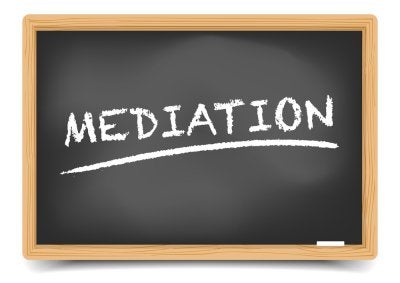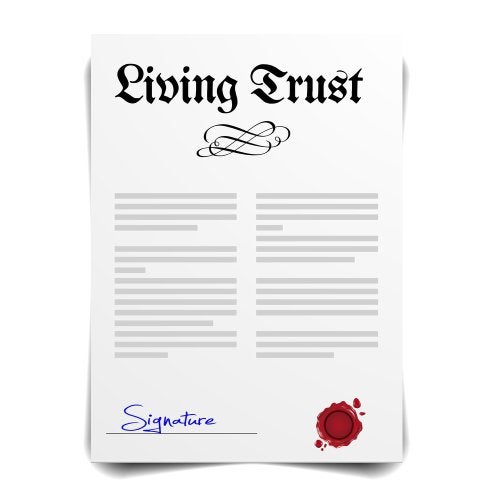-
How Can Assets Be Passed Outside of Probate?
One of the benefits of estate planning with an experience estate attorney in Baltimore is finding ways to help your beneficiaries avoid probate. Probate is long and expensive, and if you don’t set up your estate properly, your assets could be tied up for an extended period of time. Fortunately, an estate lawyer can help you use legal tools that let you pass property to your beneficiaries outside of probate, saving considerable time and money. Here are some of the strategies that can be useful in protecting your assets from probate.

Joint Property Ownership
You can use the right of survivorship to prevent a property from entering probate by owning it jointly. Jointly owned properties automatically pass to the co-owner upon the death of the other owner, with no need for probate. Typically, your estate lawyer will create a legal document that sets out the joint ownership and the right of survivorship. Although married couples usually have joint property ownership, the agreement doesn’t have to be between two spouses. Anyone can create a joint property ownership agreement with any person they wish to inherit the property without having to deal with probate.
Death Beneficiaries
There are certain types of financial accounts that allow you to name a beneficiary to inherit the account when you are gone, thus passing outside of the will and the associated probate process. These accounts include payable on death (POD), transfer on death (TOD), and retirement accounts, including traditional and Roth IRAs and 401(k) accounts. However, keep in mind that an surviving spouse often has a right under the law to some portion of your retirement accounts, so even if you don’t name him or her as the beneficiary, they may automatically receive a least a portion of them. Your estate planning lawyer can help you plan accordingly.
Revocable Living Trusts
Revocable living trusts let you transfer assets to a trustee while you are still alive, with the right to cancel the trust at any time. The trustee becomes the owner, so the property can no longer be included in your estate and will not enter probate upon your death. The trustee will then distribute the assets as instructed by you in documents prepared by your attorney.
-
How Living Trusts Work
One of the methods people use while estate planning to avoid probate is a living trust. A living trust allows you to pass assets outside of probate to your beneficiaries while you are still alive. When building a living trust, it is important to work with an experienced estate lawyer in Baltimore to ensure that it is established correctly.
Watch this video to learn more about living trusts. Because probate can be lengthy and expensive for your beneficiaries, many people focus on taking steps to avoid it while going through the estate planning process. Living trusts are also beneficial for people who wish to avoid probate because of privacy concerns or who want to ensure certain assets get to the intended beneficiaries by passing them outside of the probate process.
-
Why Should You Consider Settling Alimony Disputes in Mediation?
It should come as no surprise that alimony can be an extremely difficult part of divorce negotiations. However, some couples are able to minimize their conflict and come to an agreement over alimony in mediation. Mediation differs from court in that it is not about winners and losers. Instead, mediation focuses on helping both parties work together to come up with a viable solution that feels right to everyone. There are several reasons why choosing mediation in Baltimore over court can be beneficial.
One significant benefit of going to mediation for alimony is that it is less expensive and time-consuming. Courts have to consider a long list of factors before making a ruling on alimony, which can drag out this contentious issue and increase the stress surrounding the divorce. Settling alimony in mediation allows you to circumvent court-dictated alimony standards and come up with a better solution that meets everyone’s needs. Working together in mediation also sets the stage for cooperating on more issues in the divorce, so you can reduce the amount of stress associated with the process.

-
Preparing for Mediation in a Paternity Dispute
Sometimes, part of child support and child custody cases involves addressing the issue of paternity. This area of family law can be difficult for everyone involved, but it is necessary in some cases to take this important step before any decisions about child support are made or after child support is in place but one parent has a doubt about paternity. Although some paternity tests are ordering the courtroom, disputes about paternity can also be addressed during mediation. Going to mediation in Baltimore to deal with questions surrounding paternity and child support is similar to any other mediation experience. If you have a mediation session planned, here are some tips for preparing.

Consider Your Personal Statement
Most mediation sessions begin with each party making a brief statement about the issues you hope to resolve during mediation and how you view the dispute from your perspective. Although you will be allowed to speak without interruption while making your statement, keep in mind that the other party’s attorney may be present and could use information shared in mediation in court should the negotiation fail. Talk through your statement with your lawyer to avoid any issues. For instance, if your stance is that a paternity test should be required, avoid saying anything that suggests that you know the child is yours.
Prepare for Questions
The mediator will likely ask both sides questions to gather information that could be helpful during the negotiation. These questions help the mediator identify possible solutions that could work for both sides. Remember that mediators do not provide legal advice. Your lawyer should be present at all mediation sessions in case you have legal questions and to review any documents before you sign them.
Be Open to the Process
Mediation is designed for both sides to come away feeling satisfied with the agreement. One side does not win while the other loses. Your lawyer can help you understand the strategies the mediator may use to help you reach an agreement. Remember that your paternity dispute is not resolved until an agreement is signed, so you have nothing to lose by entering negotiations.
-
What Is a Children’s Trust?
A children’s trust can be a useful estate planning tool for families with small children. It allows parents to leave assets to children while controlling the age at which they have access to them. Your estate lawyer in Baltimore can help you decide if this kind of trust could be right for you.
With a children’s trust, benefactors assign assets to a trust for a child and identify a trustee to control the assets until the child reaches an age set by the benefactor. For instance, while estate planning, parents may decide to set up a trust for their toddler and name a close relative as the trustee. The trust says that the child cannot control the inheritance until they reach age 18. If both parents are deceased before the child reaches 18, he or she receives the trust but the trustee manages it as directed by the parents. If both parents are deceased after the child reaches 19, he or she receives the inheritance without the involvement of the trustee.
Children’s trusts put many parents’ minds at ease while estate planning. Your estate lawyer can guide you through the process of establishing your trust.

-
Tips for Talking to Your Spouse About Estate Planning
Estate planning is one of the most important things you and your spouse will do for your family, but starting the conversation isn’t always easy. Scheduling an appointment with an estate lawyer in Baltimore is a good step, but it can be helpful to have a conversation before your meeting so you can align your priorities and come up with a list of questions. Use these tips for talking to your spouse about estate planning.

Start With Why
Before you begin the estate planning process, discuss why it is important to you and why you want to begin it now. In some cases, you may only have a vague idea that estate planning is something you’re supposed to do and feel like you are at the age to do it. In other instances, you may have very specific goals you want to accomplish. By identifying why you want to make a plan for your estate, you can focus in on your goals and create a framework for your decision making process.
Identify Your Non-Negotiable Points
You and your spouse may have some very specific things you hope to accomplish with your estate, and it’s important for your attorney to understand these needs up-front. You may have a family business that you want to pass on to your heirs in a specific way, or you may have a child with special needs that you want to make preparations for. Make a list of the things your estate must do so you can make sure your plans meet these needs appropriately.
Take a Break When You Disagree
Estate planning should be something you and your spouse feel good about together, not the source of conflict. If your conversation becomes heated over things like making a living will or setting up a trust, take a break. Allowing each other time to think and returning to the conversation when you’re calm again will make the process easier.
-
Common Reasons for Post-Divorce Mediation
Mediation can be a useful tool during divorce to settle issues with as little acrimony as possible. Whether or not mediation was part of your initial divorce, it can also be helpful in solving new issues as they arise after the divorce. Post-divorce mediation in Baltimore allows former spouses to address unforeseen circumstances without reopening old wounds and going into the process as adversaries, since mediation is focused on building agreements that are acceptable for everyone. Here are some of the many reasons people attend post-divorce mediation.

Child Support Modification
There are numerous reasons why a child support agreement may need to be modified, from job loss to increased income. When a circumstance arises that causes one parent to reopen the discussion about child support, mediation allows him or her to do so without the contentious nature of court. A mediator can help both sides lay out their opinions and work with them to build a new agreement that satisfies both sides.
Child Custody Modification
Child custody is almost always a difficult issue during divorces, and sometimes, after the final decree is issued, parents find that the agreement isn’t working. Perhaps the children want to split up their time differently or one parent feels like he or she needs more time with the children. In some cases, parents need to adjust child custody and visitation schedules because of relocations or changes in working hours. Rather than arguing over the issue in court, mediation lets parents work together on the same side to give and take on an agreement that meets both of their needs.
Alimony Modification
Sometimes, the circumstances that were in place during the original alimony ruling may change, forcing the need to modify the agreement. For instance, the spouse paying alimony may lose his or her job, changing his or her ability to pay, or a spouse receiving rehabilitative alimony may finish school early and land a lucrative job. Mediation gives both parties a place to discuss their concerns openly and collaboratively in order to come up with a solution.
-
Should You Consider a Trust?
A trust is a financial tool often used during the estate planning process . When a trust is created, a third party, called a trustee, is given control of financial assets meant for an inheritor or beneficiary. During the creation of your trust, you and your estate lawyer serving Baltimore can choose the type of trust you want and determine the terms that must be fulfilled before your beneficiary gains control of the trust himself. In many cases, trusts are passed on to beneficiaries upon the settlor’s death or when the beneficiary reaches a certain age. Creating an irrevocable trust is an excellent way to reduce estate taxes after your death; furthermore, the property and assets that you place into a trust does not go through the probate process. These factors ensure that your chosen beneficiaries will receive the amount you wish them to inherit in full and much more quickly than if legal proceedings are needed to determine inheritance.

-
What to Expect During a Business Dispute Mediation Session
Business disputes can arise over many situations, including miscommunications, disagreements over verbal contracts, and conflicts within your employee pool. Handling business disputes through litigation can be a costly and drawn-out process; by contrast, mediation can help conflicting parties reach an agreement much more quickly, often at lower cost. Knowing what to expect from business dispute mediation in Baltimore can help you better determine whether the mediation process is right for you.

The Role of the Mediator
When you seek business dispute mediation, you and the party with whom you have a conflict will meet with a mediation attorney. This mediator will serve as an impartial third party to help you reach a resolution that is satisfactory to both parties. Prior to your mediation session, you may have the opportunity to speak with the mediation attorney in person or over the phone without the other party present, allowing you to present your side of the story. During mediation, the mediator may take either an active or a passive role, depending on your preferences.
The Process of Conflict Resolution
Mediation is a beneficial conflict resolution process , allowing both parties to discuss and reach a solution in private without the oversight of the public or a judge and courtroom staff. Depending on the type of mediation you prefer, your mediator may simply listen to both parties and point out the pros and cons of the potential solutions offered with complete neutrality. Alternatively, your mediation attorney may take a more active role that involves structuring the discussion and proactively guiding both parties toward a conclusion. Mediation can involve both joint sessions, during which all parties and their attorneys are present, as well as private caucus meetings, which allow each party to meet with the mediator privately as the process continues. Caucus meetings allow the mediator to evaluate both sides of the issue and make better-informed suggestions during joint sessions, and all information discussed during a private caucus remains confidential. Once a solution has been reached, your attorneys will use this information to draw up a legally-binding agreement.
-
Find Out How Mummert Law Can Help You Plan for the Future
When most people begin the estate planning process, they have two goals: to protect their resources as much as possible and to make dealing with the estate less stressful on their loved ones. When you need help with estate planning in Baltimore, Timothy Mummert of Mummert Law can help. Watch this video to learn more.
Mummert Law is experienced in all aspects of estate planning, from last will and testament preparation, revocable and irrevocable trust planing, and more. The firm is also here to help your loved ones deal with the process of probate as quickly and efficiently as possible. Delaying estate planning can put your assets at risk, so make an appointment with our attorney today.

